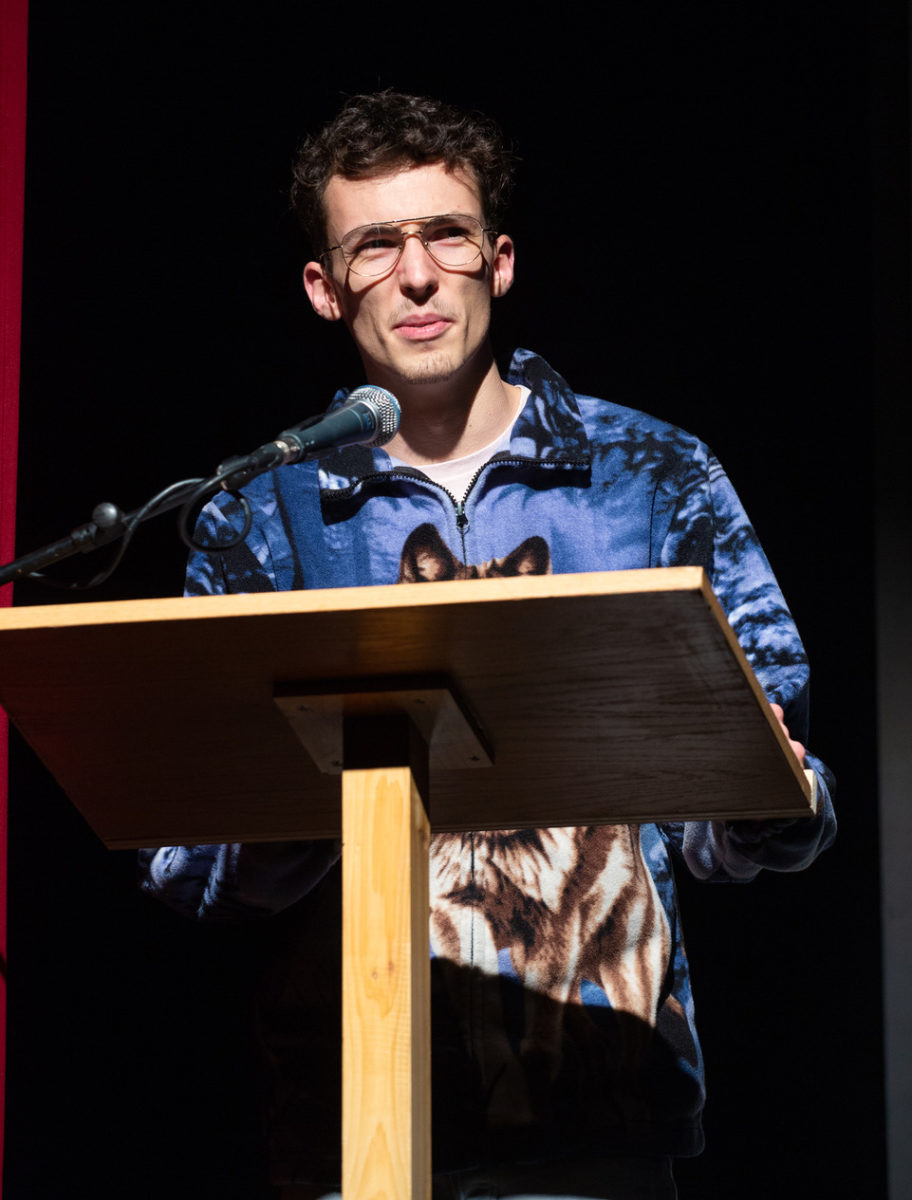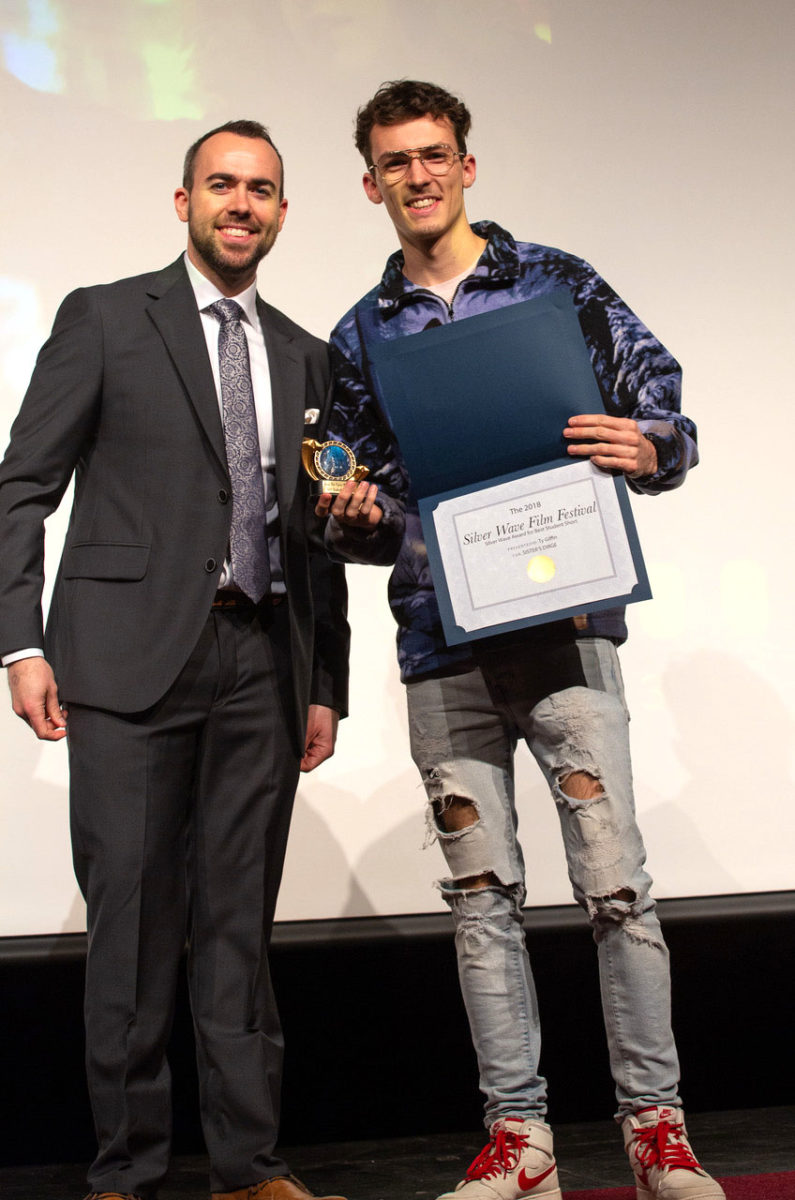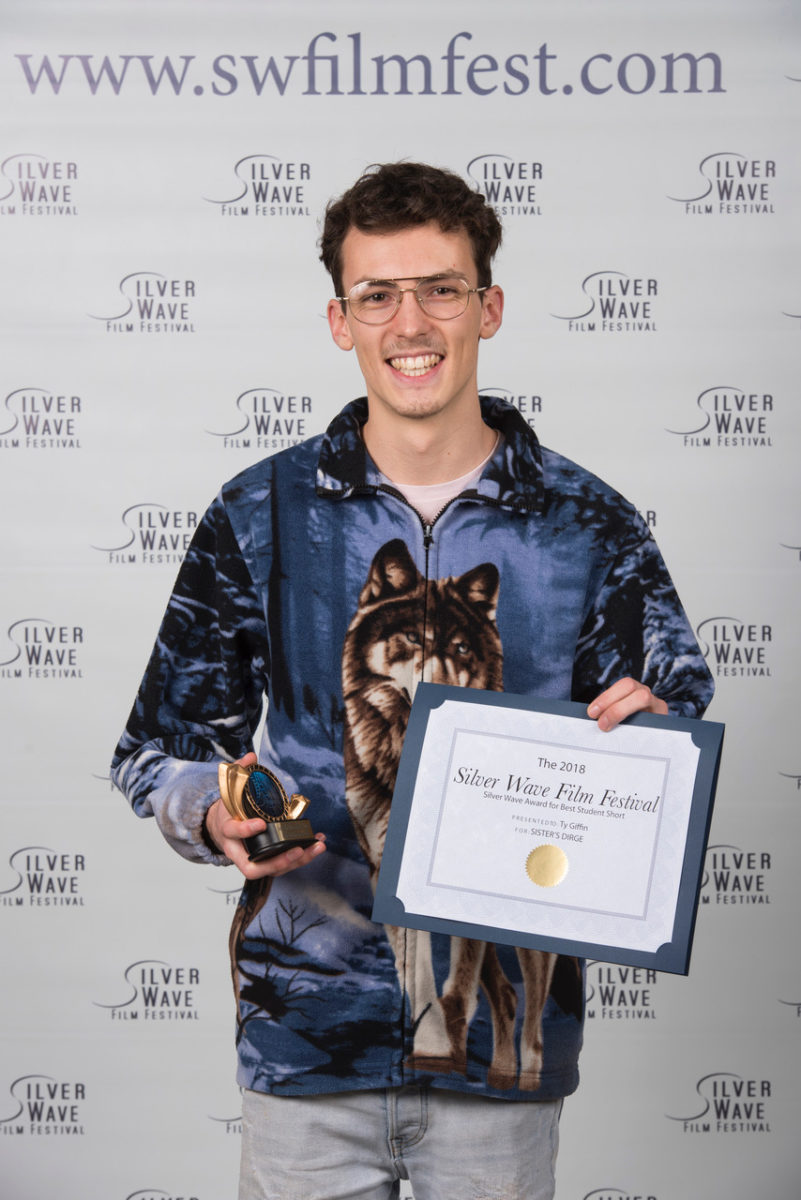
Filmmaker Ty Giffin accepted his award for best student short at the Silver Wave Film Festival on Nov. 10.
The award, called the Isaac Miller Legacy Award for Best Student Short, was one Giffin didn’t even know existed.
“There was no student category, so I didn’t even know if there was an award for it. Also, there are shorts from all over Canada so I didn’t know who was a student that was submitting,” he said.
Giffin received the award for his short film, Sister’s Dirge, a project he completed for the honours program in film production at the University of New Brunswick. It was funded in part by the New Brunswick Filmmakers’ Co-operate.
Giffin is working with Frictive Projects, a New Brunswick filmmaking group, where he is organizing community film events, as well as working on projects with his own company, TG productions.

Inspired by the western genre, his film focuses on telling the story of missing and murdered Indigenous women. It’s classified as a neo-western, meaning it has the components of western storytelling but incorporates new values. It’s meant to make people think about the racial discourse still seen today.
“I was able to analyze the western genre and be like, ‘This is the way in which it spreads stereotypes and promotes stereotypes and this is the way maybe we could do better.’”
The focus of the film is on the sister of a missing Indigenous girl named Sarah (Raven Peyote). She realizes that to save her sister Emma (Allie Barton), she must take matters into her own hands.
The story is meant to change the narrative of the western genre by giving power to someone other than a white male.
“I kind of just took all of those stereotypes and flipped them on their head and that has been something I’ve talked about a lot with a lot of different people.”
Giffin is aware that it’s his responsibility as a white male to use the privilege he has to tell these stories in the correct light.
“I am not trying to tell people’s stories for them. It is more of me using the privilege of academic institution to analyze racist discourse.”

Before the film was shot, Giffin hosted sensitivity readings with Indigenous peoples to make sure they were being represented correctly.
“If I was making money off of this film, it wouldn’t be right for me to make it but we certainly took all the steps to make it as respectable as possible,” he said.
The film has also received an award for Best Western Short at the Global Film Festival in Los Angeles and has been shown in various other festivals in both Canada and the United States.
“I accepted the award and I walked off and they were like, ‘No, you have to say something,’ and I had nothing prepared, so it was a pretty funny speech, but it was definitely surprising.”
But Sister’s Dirge isn’t out of his scope yet. He’s still waiting to hear back on where it will be shown next.
He hopes that projects like Sister’s Dirge pave a path for better representation of Indigenous peoples in film.
“If Clint Eastwood in his westerns can have the happy ending or win in the end, why not her?”
